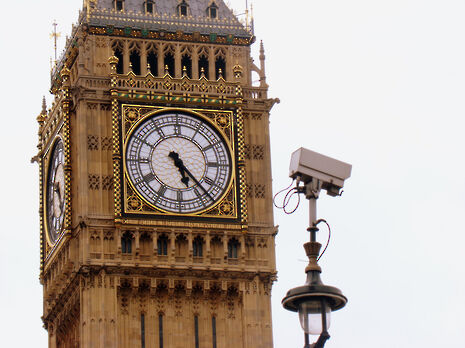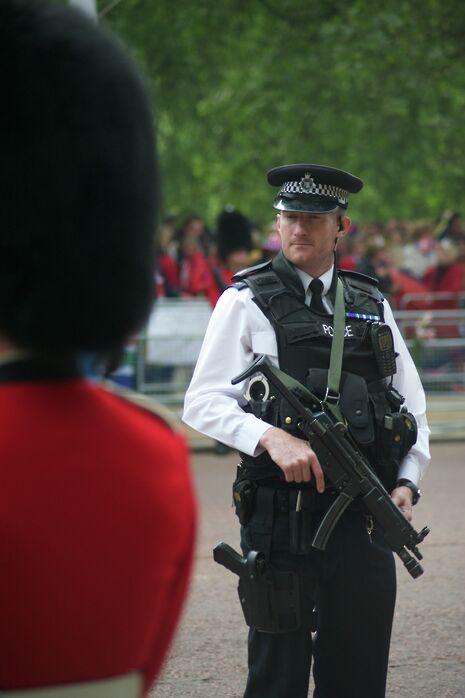How our politicians let the terrorists win
Western security states are eating themselves from the inside, fuelling the terror they are designed to defeat.

Last month, London was attacked in the heart of its broken democracy at Westminster. Five people were killed in the incident, dozens more were injured, and the depressingly predictable weaponisation of the event by far-right groups occurred within minutes, seeing Muslim people forced to face a fresh round of pointed bigoted scapegoating.
British Home Secretary Amber Rudd demanded that tech companies aid the government in preventing further terror attacks by decrypting messaging services, arguing that encrypted messaging services like WhatsApp provide “a secret place for terrorists to communicate.” A week later, she pressed the same demands again, with reports that Google, Facebook, Microsoft and Twitter had been invited to meetings with her to discuss encryption services. Rudd has launched a fresh attack on civil liberties, namely the right to privacy. It is an attack that is at best misguided, at worst, doomed to failure. On the evening of the attacks, my friend voiced a question as we talked about what had happened that day, tentatively asking “is this the new normal?”. She had been referring to her reaction to the news, which she had noted had been saddened but not surprised. That similar attacks had happened in Tunisia, Nice, and Berlin, had caused her to view terrorism as a backdrop to her young adult life, only coming into focus on these now repeated occasions of attack. Yet now that London has been struck in the biggest attack since the 7/7 bombings, we are beginning to fall into the same lulling cycle of a terror attack being followed by an attack on civil liberties, launched not by the terrorists, but by our own elected government — and that is disturbing. What is more, this attack is normal to the point of it no longer registering as a huge concern in the public domain.

These demands to decrypt messaging services demonstrate a spectacular misunderstanding of how encryption services, such as WhatsApp’s end-to-end encryption of messages, work. The technology simply does not allow for Rudd's demands that the government be able to access encrypted data: there is no algorithm or software that can create entry points that only the state can access, without leaving the messages vulnerable to more malicious threats. As Jonathon Hayes noted, Rudd’s calls for decryption actually leave the consumer, the ordinary citizen, more vulnerable to other threats, such as banking and identity fraud, or blackmail. ‘Sextortion’ is already a huge issue among the British youth; imagine the potential for it to grow with malignant threats being given the opportunity to exploit access. The incidence of manipulation of data can only rise with decryption, should it happen as Rudd demands.
Some may argue that defeating terrorism is worth forfeiting the right to privacy — after all, they have nothing to hide. Terrorism, however, does not follow this logic. The terror threat level of the UK has been at ‘severe’ since August 2014. Since then, the UK has become a mass surveillance state: in Prime Minister May’s time as Home Secretary, she oversaw the creation of the Snooper’s Charter, one of the most extensive surveillance laws in the world. The Charter, which was passed last year, grants the government unprecedented access to people’s electronic communications, with everyone’s browsing histories remaining catalogued for twelve months to be used by the police and national security forces. Despite all this, Khalid Masood managed to plan and orchestrate a mass attack in the heart of the capital, proving that curbing people’s freedoms does not reduce the threat of terrorism.
The event at Westminster has seen a heightening fear of malicious attack on civilian freedoms. In PM May’s statement following the event, she praised the values which British democracy seeks to protect: free speech, liberty, and human rights, stating that they would prevail against the threat of terror. Paradoxically, however, her government has and continues to erode these very rights in their bid to protect them.
This attack on rights is not new — the government has both fuelled and legitimised a culture of criminalising those who seem visibly Muslim – brown-bearded men and those who wear the hijab – so that their rights have already been curtailed for years, in the state’s bid to combat terrorism. The government’s Prevent legislation sees the systematic curtailing of Muslim people’s right to free speech and assembly in schools and universities across the UK, as the state has legitimated students and teachers surveying and profiling their peers whom are coded to be deviant. Last month, the counter-terrorism unit launched their ACT Campaign, including YouTube adverts which roll out before beauty videos and travel vlogs, telling the public to ‘report anything suspicious’. The advert doesn’t specify what is considered suspicious, but in this dominant culture of state-legitimised Islamophobia, it is not hard to guess what group will be targeted with false suspicion, ill-informed fear, and the potential for attack. This props up the straw man provided by the government just that little higher: Muslim people, who have been wrongly assigned blame for Western foreign policy failings.
“The War on Terror has been fought by the state turning inwards, stripping away at its constitutionally granted liberties in a bid to defeat an enemy.”
In doing so, the state has antagonised, and thereby radicalised, those with the potential to attack — namely, those whose attraction to ISIS ideology is fuelled by resentment towards their seeming loss of control, including that over women. It is worth noting that the Westminster attack took place the day after the UK followed the US in implementing restrictions on electronic devices being carried on flights from six Middle Eastern countries, despite experts noting that such a ban has no real purpose in preventing terror. The state made a thinly-veiled charge of suspected terror against Muslim people (but only some — Saudi Arabia, to whom the UK sells arms to aid the war in Yemen, is not included on the travel ban list), infringing the right of people to freely travel, suggesting that followers of the faith be criminally deviant — and terror followed the next day.
Derrida called it. After 9/11, he noted that the threat of terror, being without borders or states, would result in the USA eating itself from the inside as it sought to fight a war without tangible parameters. The War on Terror has been fought by the state turning inwards, stripping away at its constitutionally granted liberties in a bid to defeat an enemy. The government should note this in their calls for decryption to protect ‘British values’ from further threat, and in their continued attack on Muslim people especially: the Western notion of liberties that they think they’re protecting have already been destroyed, not by terrorists, but by the state itself. Terrorists can’t attack what doesn’t exist.
 News / SU reluctantly registers controversial women’s soc18 December 2025
News / SU reluctantly registers controversial women’s soc18 December 2025 Features / Should I stay or should I go? Cambridge students and alumni reflect on how their memories stay with them15 December 2025
Features / Should I stay or should I go? Cambridge students and alumni reflect on how their memories stay with them15 December 2025 News / Dons warn PM about Vet School closure16 December 2025
News / Dons warn PM about Vet School closure16 December 2025 News / Cambridge study finds students learn better with notes than AI13 December 2025
News / Cambridge study finds students learn better with notes than AI13 December 2025 News / Uni registers controversial new women’s society28 November 2025
News / Uni registers controversial new women’s society28 November 2025









